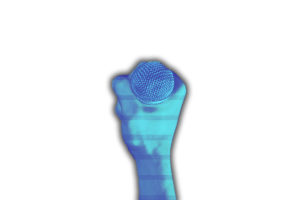When it comes to the digital world, 2017 had a plethora of highs and lows. As we take a look back on the last 365, the future doesn’t always seem bright. Will we be controlled by robots? Are we capable of more real life interactions? Is our political system doomed?
The good news is that the conversation about what it means to be a digital citizen is ongoing. Media, in all forms, play a critical role in our lives. The side effects of digital life are ever present, from compulsive texting to our intensified political divides.
We will never be able to go back to a time when technology didn’t encompass such a large part of our existence. Sometimes it seems like the negative aspects of technology have already won the day. But there’s always room for growth – to become more thoughtful and responsible in the way we approach digital life.
Our Brains Were Hacked
At times it may seem like technology, the internet, and smart phones have taken over. We constantly check our phones. As soon as we get home we’re loading up Netflix to binge on episodes. We mindlessly scroll through our social media feeds. Now you can even ask Alexa to remind yourself to text your friends to make plans.
It is truly amazing what technology is capable of. Yet, we must remain vigilant as these advancements can come with consequences. We’ve seen that even though we have the ability to connect with each other instantly we, can still feel lonelier than ever. Studies show that social media’s addictive qualities often lead to intense feelings of isolation, depression, and compulsive behaviors. All in all, we’ve come to understand that unchecked technology use can be a recipe for disaster.
Luckily, 2017 was the year that we started to address these issues.
Earlier in the year, former Google product manager Tristan Harris spoke to Anderson Cooper on 60 minutes about the dangers of social media. “Our phones are like slot machines,” he said. Harris also says that Silicon Valley is engineering our devices to keep us hooked – something that former hire-ups at Facebook agree with.
Facebook’s first president Sean Parker admits he regrets developing social media without truly understanding the consequences of it. At a recent discussion at Stanford Graduate School of Business, former Facebook vice president Chamath Palihapitiya said, “I think we have created tools that are ripping apart the social fabric of how society works.”
Silicon Valley is designing our phones and apps to tap into our dopamine response systems. Our pleasure system is rewarded, sending us into a constant feedback loop. We seek instant gratification through a swipe or like. When we are rewarded, we seek again.
Hopefully, engineers and technology experts continue to speak out about the addictive qualities of social media and what it means for our society. As digital citizens, we too have the join the conversation. The time for being silent about technology’s side effects is over. Have conversations with friends, co-workers, and lawmakers. Engage with each other in person. Remember that face-to-face interactions are always more powerful. Debate essential questions: “How can we be better digital citizens?” and “How can we have political disagreements without being disagreeable?”
We Were the Divided States of America
Unless you are living under a rock, 2017 was an extremely divisive year in politics – with some accusing Facebook of accentuating the divides. While social media has the power to connect us to different ideas, beliefs, and cultures the practical application of this has been less than ideal.
Red feed, blue feed – a side by side comparison revealed how differently we exchange ideas across social media platforms depending on our political leanings. Mark Zuckerberg defended Facebook’s newsfeed, arguing that it’s only natural for observers to engage with content they agree with. However, social media can make it easy for us to find ourselves in a content bubble that only deepens our current beliefs.
We can engage with social media in a way that doesn’t exacerbate bias and echo chambers, but each of us must take on the challenge individually. The reality is we have to change the way conversation is happening on social media. As well as advocate for the creation of algorithms and applications that help facilitate the exchange of diverse ideas, not just feedback loops.
But social media weren’t all bad when it came to politics in 2017. Grassroots organizations have benefited greatly from their influence. Twitter campaigns like “Me Too” went viral – producing action, raising awareness, and empowering women to speak their truth. Me Too helped expose sexual predators who hid behind power and status and made them accountable for their actions.
Black Lives Matter used technology to create a movement. Protests, acts of police brutality, and speeches shared across social platforms mobilized people en masse. Writer Bijan Stephen explains, “Social media could serve as a source of live, raw information. It could summon people to the streets and coordinate their movements in real time. And it could swiftly push back against spurious media narrative with the force of a few thousand tweets.”
In the wake of Hurricane Harvey and Irma, social media helped mobilize recovery efforts and allowed ordinary citizens to tell more diverse stories from their vantage point on the ground. Dissimilar to what we saw in 2005 when Hurricane Katrina devastated New Orleans. Going forward it is important to continue to look to use social media to create positive change and develop deeper connections and interactions with each other.
The question remains whether we can truly look across the divide in 2018. Will social media and democracy always be doomed? We must look to policies, new platforms, and crowd-sourcing mechanisms to deepen our abilities to engage in true civic discourse.
We Lost Net Neutrality
The most recent decision on net neutrality has the potential to upend the internet by turning it into an uneven playing field that can be manipulated by ISP’s (internet service providers). Net neutrality prohibited ISP’s from speeding up access to content and applications they have ownership in or approve of, and slowing that of their competitors.
Without net neutrality, large media companies can essentially affect your power of choice on the internet. For example, Comcast could slow down your Netflix service – no more easy binge watching. Not only could they slow down your access to competitors’ content, but also that of grassroots organizations that advocate for a free and balanced internet.
Ajit Pai believes the undoing of net neutrality will stop the federal government from “micromanaging the internet.” Whichever way you lean on this debate, removing these protections has the ability to allow companies to set up slow and fast lanes. The Associated Press asked internet providers if they are planning on establishing these prioritization lines after the net neutrality decisions. They either declined to answer her or said they had no plans to do so. Though if providers choose to do this, they will have to publicly disclose instances of paid prioritization.
And while the removal of these protections might not have a drastic effect overnight, especially for major companies, newer companies will struggle operating in this new landscape. The power will move from the hands of the consumer to the pockets of the providers.
Is there positive to look forward to in 2018?
Absolutely! But it’s up to us. While our technological future may sometimes look bleak, we must seek to be media literate, engaged, and active digital and physical citizens. Only then can we develop and use media technology, and not let media technology use and develop us.
Let’s spend more time engineering and advocating for positive technological advancements for greater social impact rather than mindless scrolling and instant gratification feedback loops. And take moments to look up from our phones, go outside, talk to a friend, and learn from a stranger.
Bring it on, 2018. We’re ready for you.






